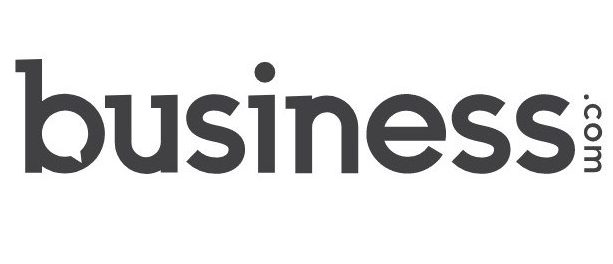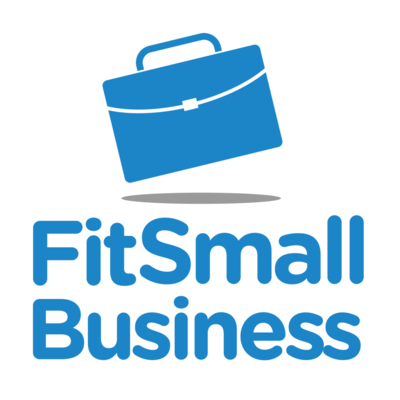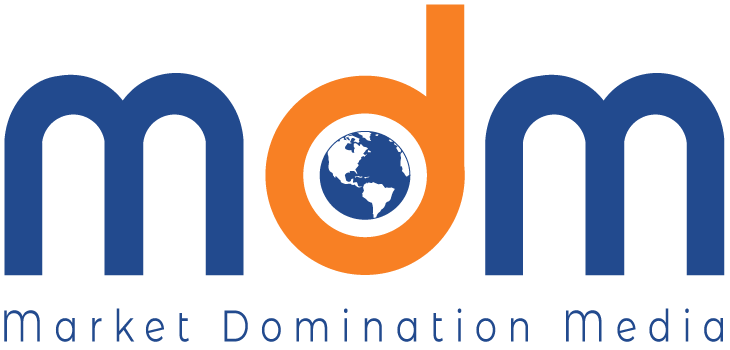Tip of the Law – Modernizing Legal Operations | Eric Gros-Dubois
Date: June 26, 2024
In this episode of Tip of the Law, Joe Giovannoli and Eric Gros-Dubois discuss innovative legal practices for modernizing operations.
In this week’s episode of the Tip of the Law podcast, host Joe Giovannoli sat down with Eric Gros-Dubois, founder and managing partner of EPGD Business Law in Miami, Florida. Eric shared insights into running his law firm like a business and prioritizing client service.
As the son of an immigrant, Eric credits his background with fueling his entrepreneurial spirit. After earning his law and MBA degrees, Eric realized he wanted to serve small business owners by building a full-service firm. He surrounds himself with specialist attorneys to handle any legal need a client may have.
When asked about differentiating his firm, Eric emphasized direct client contact. Unlike traditional pyramid structures, every attorney at EPGD, regardless of seniority, manages their own cases and clients. Eric believes this flat structure leads to better service and accountability.
Eric also discussed innovating on billing practices. Rather than charging for multiple attorneys on a call, clients only receive one invoice for direct attorney time. He wants clients focused on their legal matters, not nitpicking bills.
Maintaining an empty inbox is Eric’s “superpower” and the key to his responsiveness. He trains an assistant on delegation and turns emails into a to-do list. Junior attorneys receive mentorship through weekly meetings to hit the ground running on their client cases.
For fellow lawyers, Eric recommended recording every lead referral to better understand business opportunities. Data on past clients and referrals provides valuable insights for relationship building and future growth. Overall, Eric’s entrepreneurial and client-centric approach has clearly found success in the competitive Miami legal market.
Key takeaways
- Prioritize direct client contact and accountability by adopting a flat organizational structure where all attorneys manage their own cases and clients. This leads to better service than traditional pyramid models.
- Innovate on billing practices by only charging clients for the direct attorney time on a call or matter. Avoid frustrating clients with bills that include multiple lawyers.
- Record all client leads, referrals, and interactions to gain valuable data insights. This data helps strengthen relationships, identify growth opportunities, and make the business more measurable and organized over time.
Episode Transcript
Joe Giovannoli
You’re listening to the Tip of the Law podcast where we invite top leaders from the legal industry, including managing partners, CMOs, directors of marketing, legal industry providers, and more to join us for engaging 30 minute Fireside Chat style discussions. This week. I’m speaking with Eric Gros-Dubois, Founder and Managing Partner of EPGD Business Law, located in sunny Miami, Florida. Eric and his team work with business clients of all sizes to assist them with M&A, employment, litigation, and other matters critical to running their businesses. Eric prides himself on being not just an attorney, but an adviser to his clients. Without further delay, let’s get to the Tip of the Law with your host, Joe Giovannoli. Eric, thanks for joining me today.
Eric Gros-Dubois
Hi, Joe. I’m glad to be here. Thank you. Awesome.
Joe Giovannoli
So I don’t know if you’ve heard the podcast. But you know, I started out with a simple question just to kind of break the ice a little bit. Tell us an interesting fact about yourself that people may not know.
Eric Gros-Dubois
So I always like to think about my background. So my father moved to America when he was 19. And literally had the clothes on his back. Flash forward, I kind of feel like that led to me being an entrepreneur, lawyer and being an entrepreneur myself. However, ironically, he only works in corporate America. But I do feel like there’s definitely, and down here in Miami, Florida. We’re 55% born in a foreign country. And I’m from Texas. So it’s kind of like being born in a foreign country. But there seems to be an entrepreneurial spirit and drive that I think the immigrant communities have, maybe they don’t realize all the barriers that they have to overcome. Or maybe they have less to lose, I don’t know. But it definitely has led to what we do now, which is we’re entrepreneur lawyers, all of our clients are our small to medium sized business owners. A lot of times I could sit down with him and have honest conversations about things like cash flow, and things like profit margin, that, you know, maybe a lot of other lawyers can’t or don’t know how, or, or just don’t have the right background. And you know, I was just having a conversation with my partner, and we were talking about whether or not to hire someone. And we were having like a real cost benefit analysis discussion of is this person going to be a profit center, or they’re going to be a cost center? So that’s my, my background. I’m the son of an immigrant moved to New York in 1971.
Joe Giovannoli
Awesome, Eric, you are, you’re a unique breed, because you know, the running saying is that many law firms and you know, managing partners of law firms don’t run their law firm as a business. And it sounds like you are leading the charge for your business, thinking like a business and not like a law firm, which makes you a very rare breed.
Eric Gros-Dubois
So I think I think you’re right. And I think there’s a couple ingredients that partly it’s totally by accident. So I was in law school, and I wasn’t ready to start my career yet. I wasn’t ready to go and be a lawyer and go out into the real world. And I heard that they had an MBA program that was just one more year. And I was like, Oh, wait, I can stay at school another year. And so I did, and I absolutely have no regrets. I learned a whole new vocabulary, I learned a new way of thinking which then later on just happened to be so useful. And then if I can just piggyback on that one more point. At a certain point, I recognize that you could either be a great lawyer, or you could be a great business person. But I don’t know if I can be both. I’m not saying that nobody can be both. I’m sure that somebody out there can. But I ended up bringing on a partner. And he’s a great lawyer, and he loves going to court and loves being a lawyer and he’s a lawyer’s lawyer. Whereas if I do nothing but running firm and business development for the rest of my career, like that’d be great.
Joe Giovannoli
That’s that’s, that’s amazing. And again, very rare. Sounds like you had a great experience with your MBA, your, your college and university and your MBA program. You want to give them a shout out and say where your alma mater is?
Eric Gros-Dubois
Sure, American University in Washington DC, I went to the Washington College of Law and then the Kogod School of Business and actually have a co worker who did the same path here, the firm, the small world we met he applied for a job down here many years later, but I missed my days in DC. That was a great time in my life. I learned a lot.
Joe Giovannoli
Awesome, very cool. So you’ve kind of started to get into this but let’s talk a little bit about why you chose business law and how you really ventured into this. You know, it sounds like your life just kind of kind of led you here right there was almost like there was a string attached. Right? So tell me a little bit about how you got into business law.
Eric Gros-Dubois
Sure. So partly it’s a complete accident. So, by the time I was a six year lawyer, I had pretty good experience in tax law, intellectual property contracts, estate planning, probate and litigation. And when I say, experience, I’ve been doing it for six years, in boutique firms that were very hands on. So I actually was in the room with the client. I was in the courtroom. The first day I ever became a lawyer. I was sent to court, like day one. And I was like, Oh, you’re coming with me, right? And he’s like, No, like you’re a lawyer. Now go do this. So flash forward, I decided to start my own firm, and I go to a networking event. And I was a little too honest, I begged, what do you know how to do? And I was like, Well, you know, I do tax law. And I do estate planning, I do probate and I do litigation. And my friend, my mentor pulled me aside, he goes, Hey, you can’t do that. And I go, What do you mean, he goes, you know, the old saying, a jack of all trades, master of none. And I go, but Brian, I liked being a generalist. I think it makes me more effective at what I do. He was, that’s fine. You just have to start whining. So the lie was, what kind of lawyer are you? Oh, my business lawyer knows, and so there wasn’t any more elaboration. And then if you dig a little bit deeper, like, what will kind of evolved out of that was, that’s the type of client I want. And then what I want to do is build a full service firm to serve as that type of person, right. So that type of person is going to need a will. And that type of person is going to buy real estate and that type of person is going to set up a business. Now I know better than to try to do it all myself. So now I just surround myself with specialists, which is the probably the next part of the secret sauce is, you know, the guy in my office on my left is amazing. And intellectual property. Like, I know a little bit he knows everything. The guy and obviously my right does post judgment collections and partition actions like he is the man for that stuff. So back to the original question. I decided to pick on the type of client I wanted, and then build the firm around that.
Joe Giovannoli
You know, it’s, it’s funny that you identified that, and thank you for that story. And it’s funny that you identified that as having to kind of quote unquote, lie, right. And the first thing that in my, my mind that the first thing that crossed my mind was, you know, business lawyers have to know all of this stuff. Because if me, like, I’m founder and CEO of a business, like, I’m going to go to my attorney, and I’m going to ask my attorney questions, and I want them to know enough around around all of those topics to be dangerous, right, but then also know how to get me to the specialist, if it’s a specialized need, you know, hey, if you need to draft up a simple will or something like that, for a business owner, you could probably do that with your eyes closed, right. But if there’s some real complexities to a trust, or something like that, you know, you’re gonna bring in an expert, you know, or a specialist, because, you know, just in case they know, something that you, you know, may not be totally read up on, you have that at your disposal. So it’s interesting, you kind of thought of that as like, oh, I have to, I have to recreate this story, when the reality is like, you’re you are that this advisor to, to whoever wants to come and work with you.
Eric Gros-Dubois
So in law school, there’s no class called Business Law. Yes, that exists, because you’re absolutely right. Because it’s, for example, three back to back phone calls, guy wants to know about noncompete law for his employees. Guy wants to know about negotiating with his landlord, and a guy wants to threaten a client that owes him money. Right, those are three back to back phone calls that I’ll have, or might even be the same conversation with one client. And, you know, I know that there’s a drive towards specialization. I know there is. But I also know that a lot of times business owners don’t want to have 17 law firms, right, they want to have one general practitioner, who then you know, on the off chance, for example, we don’t do patents. Patents is a very specialized area. But we have an excellent relationship with a patent lawyer, where sometimes we’ll even white label services, and he’s cool with it. He knows like, we’re like, Hey, we’re gonna we’re gonna sign up, the client will handle all the communication, you just tell us what you need.
Joe Giovannoli
That’s awesome. That’s great. Again, thinking more like a business person than a lawyer in many regards. That’s great. So it’s really kind of a good segue, one of my favorite questions. And I asked this question when I’m trying to break the ice with people or, you know, getting to know other founders, I believe confidently that everybody has a superpower. I know I’ve known you a short time, but I’ve gotten to know things about you that I feel like you could come out with any kind of a question or answer to this question, but what’s your superpower?
Eric Gros-Dubois
Empty zero email inbox.
Joe Giovannoli
So tell us about that, what? Why, how do you do that? Because I can’t, I have 84 right now, and I can’t do that– why?
Eric Gros-Dubois
Yeah, I know that I am getting clients who are firing other lawyers, because the lawyers are not very responsive. And we live in an instant on demand world, I’m not quite at the point where I have that little chat box that pops up on your website and the person’s like, what do you need? We have a philosophical debate about that inside the firm. But you know, if a client sends an email, or better yet, if somebody has a lead, or has a referral, I want to be the first person to respond to that. So that’s the why the how I create if I create a label, and I for every, not for every person or every client, but let’s say it’s a client that has emailed me 100 times, yes, that person is going to get a lead, right? Or a co worker, or a particular type of matter. Like I have a label for draft engagement letters. The point is, when I get an email, and I go through my inbox, I’m basically looking to see if I’m being asked to do anything, right. So if I’m just copied on an email from Joe to Eric, and you’re not asking me anything, then I can just look at it. Okay, I’m up to speed. And then I archive it. And if we email a lot, I’ll create a folder or label with your name on it. If it’s just every once in a while, I might just have a general or I might have a potential client or a networking, but then it’s out of my inbox, it’s out of sight out of mind. If you asked me a question, I can’t archive that email until I’ve answered your question. So I’ve turned my inbox into a to-do list, which basically means that I, I and by the way, it’s psychological. Now, if I see that I have three emails in my inbox, I have an itch, I have an itch, I got a scratch. And, you know, I make a joke. But what I really believe is that I’ve been able to monetize my emails, right by being the first one to respond to referrals. But client asks a question, I respond right away, they’re like, Oh, my God, Eric, you’re always so easy to communicate with. And that’s, you know, that’s the feeling I want my clients to have my referral sources, I want them to know that if they send me a referral, it’s not going to wallow in my inbox for four or five days. Because there’s nothing worse than the referral source comes back to you and says, Hey, what’s going on? I sent you a referral, and you never responded. And then you’re like, Oh, whoops, it’s in my inbox. I didn’t see it. Which, you know, not to point fingers at my partner, but I think he has like 14,000 emails in his inbox. So definitely, my superpower is the empty inbox.
Joe Giovannoli
So, I’m curious about two pieces of this. So first part of it is when did you decide to start this practice of clearing your you know, having zero emails in your inbox? What went, when did this actually become an idea for you?
Eric Gros-Dubois
I have to say, I think from the beginning, I’ve always kind of known this.
Joe Giovannoli
That’s great.
Eric Gros-Dubois
As an aside, it’s why I’m actually very inefficient at communicating over text message or WhatsApp. Because there’s no easy way for me to keep that organized. Yeah, like if you’re if a potential client WhatsApp, you but then your cousin, your mother and your girlfriend, WhatsApp, you then that other one got buried. And unless you’re very conscientious, so in fact, a lot of times people will send me a WhatsApp or a text. I’ll say, please email me. Because email I’m 100%. on WhatsApp, I’m like, 70, 60 70%.
Joe Giovannoli
No, no, hey, listen, everybody. Yeah, everybody has their thing that works for them. I myself, and it gets part of my millennial generation that I prefer text messages over phone calls is like my thing, right? And it’s just because it’s easier if that’s easier for me to manage. But my other, my other question for you is, you know that having zero emails in your inbox is something that, you know, could and this is just from an outsider’s perspective, hearing this for one of the first times, you know, it’s something that could cause some term, some turmoil in that balance between work and life, right. So is there any point that you do not turn off, but maybe aren’t worried about answering that email until a certain specific time? Like, how do you manage having a life outside of managing that email inbox?
Eric Gros-Dubois
I stopped looking when I leave the office.
Joe Giovannoli
Wow, that’s awesome.
I start looking again in the morning. And I have trained an assistant who has permission to be in my inbox. And I basically created four rules. So rule number one is it’s spam, get rid of it. Rule number two is I’m just being copied on something but I’m not being asked to do anything. It’s just like, like we’ll have these a project we’ll be getting updates and then we’ll just be back and forth between other lawyers and you know, the end of the day. I don’t really need to see those. Rule number three is it’s a simple question that anybody that you could answer that my assistant could answer, like Eric be free tomorrow to like she has my calendar, she can answer that question. She can say, hey, this is Michelle, Eric’s Assistant, I’m in his inbox. Yes, he’s free tomorrow so he’ll give you a call. And then number four, are the substantive ones. Were really only I could ever answer where the instruction is: you do a quick response. Hey, this is Michelle. I’m in Eric’s inbox. I’ll make sure he gets the message. I’ll get back to you in a few days. Which by the way, the quick response on the long substantive email buys you time, right, that’s, that’s actually a good secret to is like the client sends you the giant email with nine questions. You just respond right away confirming receipt, I’ll get back to you in a few days.
Joe Giovannoli
That’s awesome. So it’s interesting. It’s very, it’s very different than the the example I’m about to give, but it goes, goes with your rules, right? So I don’t know if you know this, but Napoleon had two rules. One, if he received any mail from anybody that was part of his we’ll call it a campaign to conquer that that mail was not to be opened for any less than two weeks. Reason being is that he said, It’s amazing the things that solve themselves in two weeks without you needing to be involved. And his other role was never wake me out of a sleep to tell me something good. Only wake me if there’s something that’s happening that is going to impede on my ability to, to, you know, conquer my mission, complete my mission. So I love that I love the way that you’ve thought through that, right? Because it allows you to continue to do it, what you want to do and make sure that you are living up to that zero email inbox, and yet still get to actually go out and have a life. That’s awesome. That’s really, really cool. That’s very inspiring, right?
Eric Gros-Dubois
Great lessons about Napoleon, who’s, you know, obviously, one of the one of the giants of history.
Joe Giovannoli
Yes, absolutely. So we’re going to take a quick break here. We just wanted to take a moment to acknowledge our sponsor for the Tip of the Law podcast, 9Sail. 9Sail is a law firm-focused digital marketing agency specializing in providing lead generation and awareness building services, such as SEO, paid search, content creation, and digital public relations. Grow your firm with 9Sail.
I want to get back to this for a second, you know, you told us your superpower is that zero email inbox, which I think in and of itself just differentiates you from 99% of your competition? But what would you say really differentiates your firm from the other firms out there, you know, specifically in the Miami area, that do similar things to what you do? What differentiates you guys? Why would somebody choose you over somebody else?
Eric Gros-Dubois
So that’s a great question. Most firms have a pretty vertical-like pyramid structure, where the partners are at the top. And sometimes the partners are the only ones allowed to talk to the clients. And then the senior attorneys and we have a name for them, senior associates are, are the next level down. And then the senior associates are assigned projects may or may not have contact with clients. And then below them, our junior Associates, and then maybe below them, our paralegals, and maybe even below them, our law clerks, right. So you could have like a command structure where it’s gotta go from the partner all the way down to the law clerk, and there’s like four steps in between. and, and there’s a very traditional way to do it. There’s a lot of safety in that model, if you happen to be a junior attorney, because you’re insulated from the, from the battle, so to speak, right here, they’re insulated from the actual go into court or the talking to the client. So that’s the normal way, we have a very flat structure, where every attorney, every attorney, regardless of your seniority, has direct client contact with your own cases. So it might be the partners are here like right at the right at the top, but then maybe we sign up the work, but then we’re immediately making a warm introduction to the attorney that’s actually going to be handling the day to day a file. And then that attorney is going to be responsible for managing the case. And the way we do it internally is obviously the people with less experience get the maybe lower stakes were batters, lower stakes responsibilities. And then obviously, as you develop your seniority and your expertise, you’re getting the higher state matters. But it’s very rare that you can be an attorney hiding third man on the team.
Which by the way, just as an aside, the one of the big criticisms of big law is that you’ll call your lawyer, but little do you know that the other three people on his team are sitting in the room. And so you’ll get an invoice for four different people at four different hourly rates for the same conversation where you only thought you were talking to one person if you’re MasterCard or American Express or General Motors, maybe you can afford that legal invoice. But most of my clients are real people. And when a real person, you know, I don’t like to nitpick because I’m, you know, I invoice people for living. So I don’t like to nitpick when I get an invoice. But still, the other day I got an invoice and I looked at it was like, really, like, I know I was on the phone with you for like, 42 seconds, you really charged me 10 minutes for that. And you know, we’re getting to a place where a lot of clients are becoming more savvy, they’re wanting more creative fee structures, you’re hearing a lot more people doing subscription model lawyers, and flat fee models. And, and even I’ve heard of litigation, which it’s anathema to have litigation on a flat fee. But maybe what you’ll do is okay, for the first two months, it only costs you this much. Or until we get to this milestone, this is the p and I’m seeing that more and more. So you know, back to the point in our firm client calls their lawyer at the worst, there’s only going to be one invoice from one person who was talking to them. So it’s very rare. And let’s just pretend that I did have a law clerk and a paralegal, I’m going to zero out their time. Because I don’t want to have that phone call with my client where we’re bickering over $75, when that’s just gonna get in the way of our relationship.
Joe Giovannoli
That’s great.
Eric Gros-Dubois
Other firms have experimented with this, I would say that one of our mantras is to make a lot of mistakes. Because we always want to be trying new things reevaluating, seeing what works, discarding what doesn’t. And the system we’ve developed is what’s worked for us for about 11 years.
Joe Giovannoli
Yeah, and, and, you know, we have a mutual friend that introduced us. And I know the one thing you don’t make mistakes with is when it’s with client work, your clients are getting the best, absolute best service that they possibly can, which is great. And I love that you guys are experimenting with your business and trying new things. And again, Eric, goes back to the beginning of this conversation. You are a business guy first, businessman first, thinking like a business owner and thinking like a founder. I absolutely love that about you. I think that that’s great. You know, and I want to ask this question of just personal curiosity, right? So you have somebody that’s maybe a couple years out of school that’s working for you. And they are going to be responsible for managing a file or a matter for a client? Can you can you tell me a little bit about what your your oversight and your training kind of program is there without going into, you know, the secret sauce details, but, you know, tell us a little bit about the training, right, because it you know, obviously they don’t have as much experience as you do.
Eric Gros-Dubois
So first of all, every attorney has at least a weekly meeting with a mentor and a supervisor. So the mentor is supposed to be more there for even like emotional support, and, and helping helping with like just knowing where things are in the firm, knowing how to make things as smooth as possible. And then the supervisor is there to give strategy and give marching orders and, and you know, Napoleon with his generals telling them that you’re going that way you’re going that way. So we only hire two types of lawyers, either you trained with us in law school, which can be for up to two and a half years. So we’re training you while you’re a student, or it’s a lateral hire, where presumably you were trained somewhere else, and you’re bringing your existing knowledge over. So nobody is a beginning lawyer with no experience. So even the ones that train with us for two and a half years, on day one, they’re hitting the ground running, they know our system, they know our culture, and they’re going to already have and this is actually really important. I don’t know what it’s like in your industry. But when I was a junior lawyer, I spent most of my time learning from the other junior lawyers, right? Like we would sit in each other’s offices and compare war stories and ask for advice and ask for help. And I think that nothing can take the place of personal experience. There’s a mythological, gray haired old man who’s going to teach you how to do everything. I don’t think it exists. I just don’t, I know that some people, sometimes they leave here and I’m like, why are you leaving? They’re like, Well, I’m looking for the mythological gray haired men, like good luck. Yeah, I never had that.
Joe Giovannoli
I have so much respect for that, because we very similarly encourage and we assign a mentor to anybody new that comes on our team and the frequency of the mentor-mentee meetings happens more frequently based off of how long they’ve been in the industry. So the people that have been in the industry less time have more touchpoints regularly with their mentor, versus the folks that are maybe coming over we’re more mentoring them on our way of doing, the 9Sail way of doing things. I love that I think that that’s you know, and you’re going to grow amazing lawyers and you’re going to you’re gonna build trust and respect within your organization through doing that. So that’s, that’s amazing. So, we’re coming up to the top of the call here.
Eric Gros-Dubois
Oh, yeah, real quick. One last thing. Yeah, one of the reasons why most firms have the vertical structure is because they’re afraid of turnover, and they’re afraid of losing their clients. Because if somebody leaves, oh my god, they might take a client with them. My partner and I have 100% confidence that we are not going to live in fear. So sure, am I going to lose a client and I’m going to train some amazing people, and then they’re going to break my heart, and they’re going to leave us someday, it’s okay, that we’re gonna keep going, we’re gonna keep, you know, fine tuning our craft. And for every one client, I lose, how about the 10 more that were better taken care of, because they had a lawyer dedicated to their file personally. Right?
Joe Giovannoli
And it’s building the reputation of the firm as having great service, right. And that’s something that’s, you know, it can’t, it can’t necessarily be replicated other places. So that’s amazing. That’s great. So we’re coming to the top of the call. You know, the name of the podcast is tip of the law. And it’s a play on words. But really, it’s we want to leave people with at least one tip or one nugget they can bring back to their firms and implement. What tip can you give to our listeners today, that might be something they can bring back to their firm and implement tomorrow to see an impact.
Eric Gros-Dubois
So in the beginning of 2019, I made a commitment to actually recording every single lead with the referral source, the organization from the referral source, and it’s basically a spreadsheet and I was using it also as a lead follower, right? Like, how many times have I touched them? Where am I in the process? But anyways, I didn’t start until 1/1/19. I started the firm on 6/3/13, which means all of that data, all of those referral sources, all of those even leads the ones that didn’t hire me from 13, 14, 15, 16, 17, and 18. So it’s six years of data gone. And obviously, now is different than way back then. But now we’re recording close to 3000 leads a year, and just woke up. And now our data is so much better. Like I can extrapolate, I can answer really cool questions. And by the way, when you’re coming up with your Christmas card list, like Oh, that guy sent me 20 referrals last year, let me make sure I send him the bottle of blue label. Or that lady sent me 10 referrals and none of them signed up, like what’s going on? Like what? Like, what’s the quality of the leads, I’m getting full marks. So my tip of the whether you call it tip of the spear, but the law, tip of the law is to work on your lists. One of my mentors said way too late, he said, your value of your business is your list of clients you have, it’s the referral sources you have, and it’s even the clients that didn’t hire you. Because who knows, maybe they will in the future. And, you know, that’s my tip.
Joe Giovannoli
Yeah, that’s and I didn’t pay you to say that I have this conversation every single day with an attorney or a marketing director or a CMO about you know, you are only as good as your information, your data, or as you said your list because you know, you are missing opportunity after opportunity if you don’t have a good handle on what makes up your business and who makes up your business. So I think that that is an amazing tip. I can also already tell that we’re probably going to pull a nice little soundbite out of that and use it, but that is, that’s awesome. You are so impressive. You are so organized with, you know, email, which is– any business owner drowns in email, like you have figured out this system, you’re running an organization that is like no other. Hats off to you. Thank you so much for being here. We’re going to include all of Eric’s information on the podcast page. So when you scroll down, you’ll be able to see his contact details in the end some information about the firm. So if you have any business needs or questions in the Florida area or any area that Eric serves, feel free to reach out. Thank you so much for being here, Eric, and thank you all for tuning in. And we look forward to seeing you in the next episode. Take care.
















